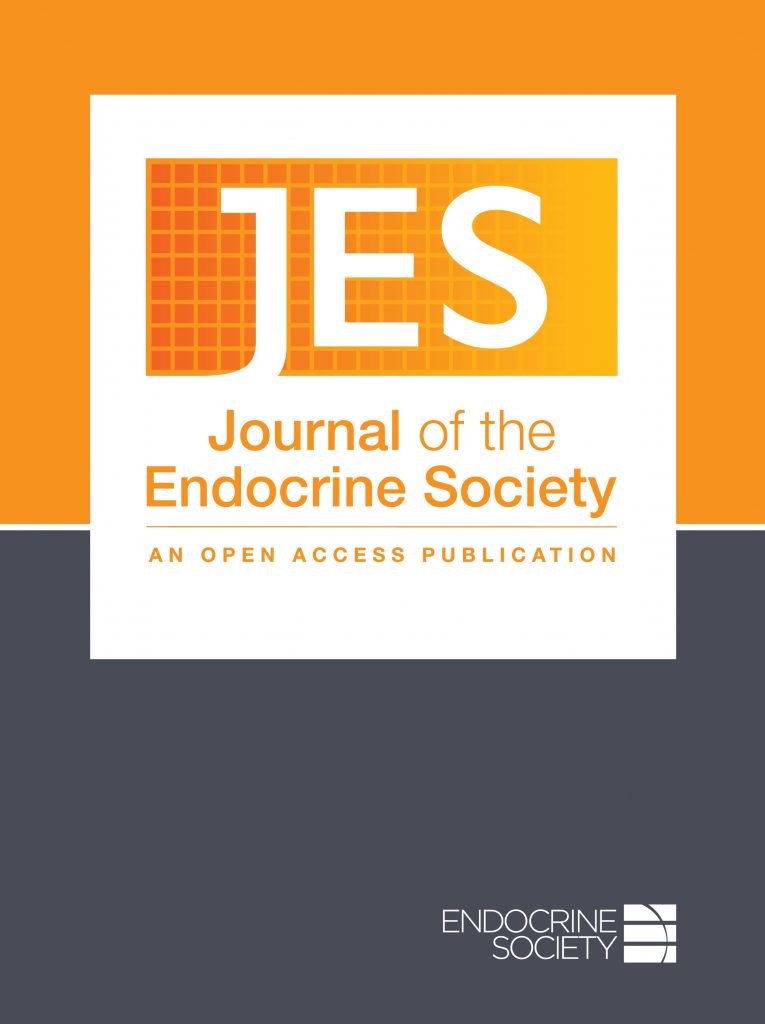For the ninth year running, Endocrine News talks to editors from Endocrine Society publications to unearth the endocrine nuggets of 2023. Here, the editors of the Journal of the Endocrine Society weigh in on what they think qualify as the year’s biggest discoveries in endocrine science.
For JES Editor-in-Chief Zeynep Madak-Erdogen, PhD, associate professor of nutrition; Sylvia D. Stroup Scholar at the University of Illinois Urbana-Champaign, “In situ spatial reconstruction of distinct normal and pathological cell populations within the human adrenal gland ” was a stand-out, published in Journal of the Endocrine Society in October by Fu, R. et al. Together with two other JES papers, “Riluzole Suppresses Growth and Enhances Response to Endocrine Therapy in ER+ Breast Cancer,” by Olukoya, A. O. et al. from September, and “Progesterone Receptor–Mediated Regulation of Cellular Glucose and 18F-Fluorodeoxyglucose Uptake in Breast Cancer ,” by Salem, K. et al. from February, Madak-Erdogen says, “It is fascinating to see all the different cell populations in the adrenal gland and associated tumors. I am looking forward to more studies like this to have a full picture of endocrine organs.”

“It is fascinating to see all the different cell populations in the adrenal gland and associated tumors. I am looking forward to more studies like this to have a full picture of endocrine organs.” — Zeynep Madak-Erdogen, PhD, editor-in-chief, Journal of the Endocrine Society
More from Journal of the Endocrine Society Editors
Ana Claudia Latronico, MD, PhD, head professor of the Endocrinology and Metabolism Division of São Paulo University in Brazil, nominates “Novel MKRN3 Missense Mutations Associated With Central Precocious Puberty Reveal Distinct Effects on Ubiquitination,” by Magnotto, J. C. et al. from the June issue of JCEM.
“Loss-of-function mutations in the maternally imprinted MKRN3 gene are the most common known genetic etiology of central precocious puberty,” explains Latronico. “Magnotto et al. described novel MKRN3 mutations in girls with central precocious puberty that are located at different domains of the protein and impacted the patterns of ubiquitination. These findings suggested distinct molecular mechanisms by which the loss of MRKN3 results in early pubertal onset.”
Latronico awards honorable mentions to three additional studies:
• “MKRN3 inhibits puberty onset via interaction with IGF2BP1 and regulation of hypothalamic plasticity ,” by Naudé L. et al. from the April issue of JCI Insight
• “Rare variants in the MECP2 gene in girls with central precocious puberty: a translational cohort study ,” by Canton, A. P. M. et al. from the June issue of The Lancet Diabetes and Endocrinology
• “GnRH replacement rescues cognition in Down syndrome, ” by Manfredi-Lozano, M. et al. from the September 2022 issue of Science

Robert D. Blank, MD, PhD, of the Garvan Institute of Medical Research in Darlinghurst, Australia, and the Medical College of Wisconsin in Milwaukee, found “Sex Differences in Pancreatic β-Cell Physiology and Glucose Homeostasis in C57BL/6J Mice,” particularly interesting. Published in Journal of the Endocrine Society in July, by Jo, A. et al., Blank says this study “expanded the scope of sexual dimorphism in an unexpected direction, and the ubiquity of phenomenon has vast importance.”
Rebecca B. Riggins, PhD, of the Lombardi Comprehensive Cancer Center at the Georgetown University Medical Center in Washington, DC selected Ma, L. et al.’s “The Liver X Receptor Is Selectively Modulated to Differentially Alter Female Mammary Metastasis-associated Myeloid Cells ,” from the May 2022 issue of Endocrinology, saying, “this is a really elegant study that provides strong rationale for developing a new class of selective nuclear receptor modulating drugs.”
Horvath is a Baltimore, Md.-based freelance writer, a frequent and prolific contributor to Endocrine News, and has compiled and written the annual “Eureka!” articles annually for nine years.

